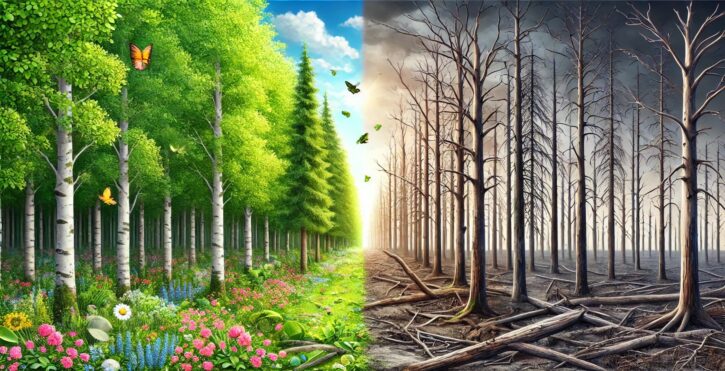
Death sucks; it’s ugly, smelly, often physically and emotionally painful to ourselves and others, and is just an all around shitty thing we’re all forced to do.
So what’s the deal? Why does all life seem to need to die? Why haven’t any truly immortal organisms evolved by now?
I’ve come to believe the answer to that question is cancer, or at least the driving characteristics of cancer. If you’ve studied the disease, you’ll note the unifying effect of all forms of cancer is runaway cell replication, where an unhealthy cancer cell will essentially replicate until there’s no longer enough room for healthy cells to fulfill their normal functions in our bodies. In effect, cancer cells outcompete normal cells until you get tumors which can eventually choke out vital organs and kill the entire organism.
Biological immortality (distinct from “invulnerability”) is a lot like cancer; an immortal species would continue to replicate until they choked their environment and ultimately starved themselves to death. It’s basic math in the end – finite resources in a finite environment can only sustain growth for so long.
Thus, when life was first evolving from non-life, over vast expanses of time not fully comprehensible to our puny brains, a biological calculus played out over innumerable iterations inside the primordial soup that was the oceans of our planet. Primordial cells didn’t “learn” to die to prevent the exhaustion of their resources (there is no intelligent design in evolution – it is utterly reactive and passive on average, always); the immortal ones simply failed to pass their genetics forward in time because they starved due to overpopulation in a comparatively short period. The ones that did die, didn’t. Thus, death is a winning strategy from this perspective.
In any finite environment, reproduction is mutually exclusive of immortality.
Interestingly, death is not necessary in any way biologically other than the evolutionary selection pressure I just mentioned. The cellular machinery that makes up our bodies is actually quite strong in terms of its potential; it’s just currently a jumbled mess and lacks any intelligent efficiency in its formation. The human body is a shining example of this “bare minimum” to get the job done, despite its apparent sophistication. If we had designed our bodies instead of the passive selection pressures of evolution on Earth, it almost certainly would be vastly superior, more efficient, and functionally immortal. Of course, we’d need the benefits of a post-scarcity society to support such proliferation without the environmentally-sustainable benefits of death.
Another reason death exists is the complexity behind repairing damaged biological matter. Believe it or not, it is far, far, simpler mechanically to create an organism (replicate, be born, grow, etc.) than to repair a significantly damaged one. For example, the process of growth in a human embryo is entirely driven by instructions derived from DNA encoding. Although complex, DNA encoding is something we can and have wrapped our minds around. However, say an organism was damaged by radiation poisoning and the DNA replication instructions were essentially destroyed or corrupted. How do you even begin to repair the damage? It’s similar to burning a piece of paper – is it easier to reverse all the chemical and physical changes the paper underwent? Or is it easier simply to make a new piece of paper from a tree?
Evolution follows the simple path of selection pressure, which is also the path of least resistance. Therefore, death is a convenient solution to both environmental resource depletion and biological damage. But that doesn’t mean death is inevitable, not at all. It merely means we evolved to die for profoundly important reasons, and that if we ever escape this biological shackle prior to achieving a post-scarcity state, we damn well better be ready to live up to the responsibility.